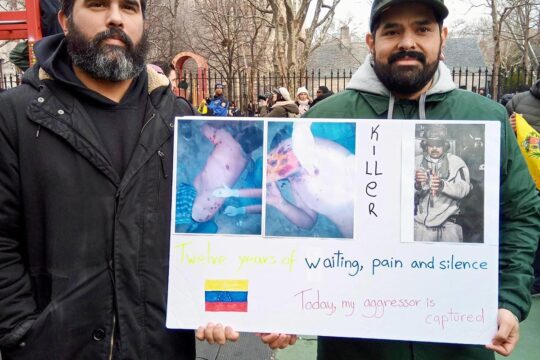Namibia on Wednesday held its first national commemoration of the genocide of the Herero and Nama peoples by colonial-era German troops, which was formally acknowledged by Germany four years ago.
Here is background into the event:
- Rebellion -
Germany ruled what was then called German South West Africa as a colony from 1884 to 1915.
Angered by German settlers stealing their land and cattle in their remote desert territory, the Herero tribe launched a revolt in January 1904. Led by chief Samuel Maharero its warriors killed over 100 German civilians over several days.
The smaller Nama tribe joined the uprising in 1905.
- At least 70,000 dead -
The Germans responded ruthlessly, defeating the Herero in a decisive battle at Waterberg, northwest of the capital city of Windhoek, in August 1904.
With German troops in pursuit, tens of thousands of people fled towards neighbouring Botswana, including women and children, across what is now called the Kalahari Desert.
In October 1904 German General Lothar von Trotha, under the direct command of Kaiser Wilhelm II in Berlin, signed a notorious "extermination order" against the Herero.
"Within the German boundaries, every Herero, with or without a gun, with or without livestock, will be shot dead," he said.
An estimated 60,000 Herero and 10,000 Nama people were killed from 1904 to 1908, in what some historians describe as the first genocide of the 20th century, with the existence of concentration camps.
Hundreds of Herero and Nama were beheaded after their deaths and their skulls handed to researchers in Berlin for since-discredited "scientific" experiments framed to prove the racial superiority of whites over blacks.
- Bones returned -
In 1924, a German museum sold some of the bones to an American collector, who donated them to New York's Museum of Natural History.
In 2008, Namibia's ambassador in Berlin demanded that the bones be returned, saying it was a question of reclaiming "our dignity".
In 2011, 20 skulls of Hereros and Namas warriors were greeted at Windhoek airport by a crowd of several thousands of people.
Seven years later other bones from members of the two tribes were formally handed back to a Namibian delegation at a religious ceremony in Berlin.
- Compensation rejected -
It was only on May 28, 2021, after five years of bitter negotiations between the two countries that Germany accepted for the first time it had committed genocide.
It pledged more than a billion euros in development aid over 30 years mainly benefiting the descendants of Hereros and Namas.
Berlin says its recognition of a genocide does not pave the way to a legal compensation claim and that the aid is not compensation. It did not officially apologise.
The representatives of the two ethnic groups and the Namibian opposition rejected the accord saying that the Hereros and Namas descendants had not been sufficiently involved in the negotiations.
Namibia finally in 2022 demanded from Germany renegotiation, with President Netumbo Nandi-Ndaitwah saying Wednesday they will continue "until the ultimate conclusion is reached".


